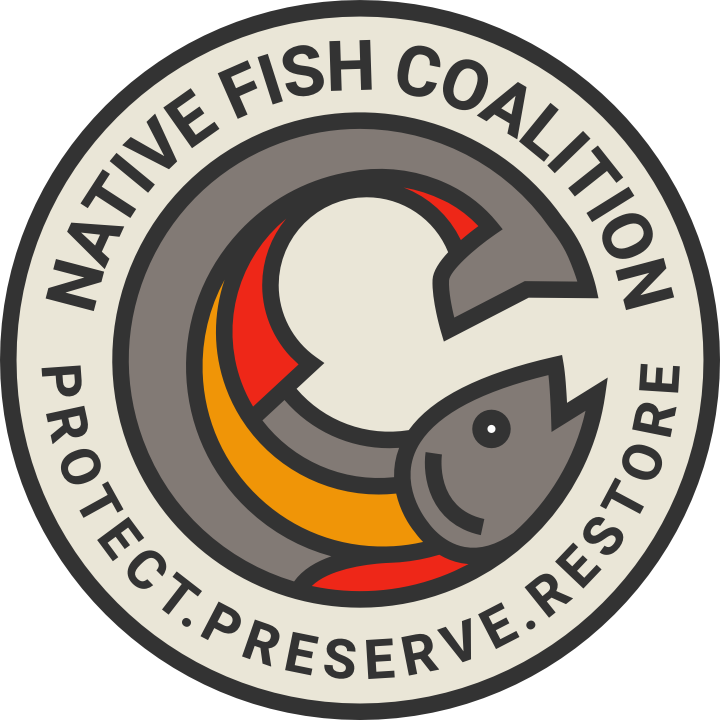Maine Arctic Charr Article: NFC Calls It...
In a recent article in Maine magazine, writer Darrell Hartman covers Maine’s Arctic Charr. A broad ranging piece that includes fishing for Arctic charr at recently reclaimed Big Reed Pond with nearby Sporting Camp owner Igor Sikorsky and Chase and Aimee Bartee, its another good, and timely, promotion of this rare and at-risk wild native fish.
Interviewed for the article a couple of months before it came out, NFC Executive Director and Maine Board member Bob Mallard raised some concerns in regard to how Maine is managing its rare Arctic charr - the last in the Contiguous United States.
“[Big Reed Pond] looks good, but we need to wait a few more years before we claim victory... -Bob Mallard”
“[Bob Mallard] worries about the resilience of Big Reed’s limited gene pool. -Darrell Hartman”
Mallard’s most prophetic statement however, was in regard to Maine Department of Inland Fisheries (MDIFW) and Wildlife’s reluctance to impose, and maintain, protective regulations that limit what anglers can do, or they believe, reduces usage:
“and [Mallard worries about] the state’s historical eagerness to roll back restrictions (such as bans on trolling, harvesting, and use of live bait) that help vulnerable populations to gain a foothold. -Darrell Hartman”
As part of a sweeping 163-page proposal to change the regulations across a number of water bodies, MDIFW states: “Compared to historical data, the Arctic charr population [in Big Reed Pond] has now fully recovered to levels documented prior to smelt introduction.”
Due to the difficulty in regard to capturing Arctic charr, and the possibility of population changes from one year to the next, can we truly say that things are back to where they were post smelt infestation? Was our baseline data complete and accurate? Is our current data?
MDIFW goes on to say, “Now that the restoration is complete, this proposal would realign the regulatory structure to that which was in place prior to 2010 and would be reflective of the success of this valuable restoration effort.
The concern here is twofold: The assertion that the restoration is complete, and the emphasis on reflecting on the success of the restoration not the long-term protecting and well-being of the resource. To come this far and backslide would be wrong-headed.
Under the Special Need section of the proposal, MDIFW recommends that the current Fly Fishing Only restriction be replaced with the Artificial Lures restriction that was in place prior to the invasive smelt infestation. They also recommend replacing the C&R restriction on Arctic charr with a 2-fish daily limit:
Current Regulation:
REED POND, BIG, AND TRIBUTARIES AND OUTLET DOWNSTREAM TO REED DEADWATER, T8 R10 WELS (North Zone). General fishing laws apply, except: CI. FFO. Daily bag limit on brook trout: 2 fish. All Arctic charr must be released alive at once. Closed to the taking of live baitfish.
Proposed Regulation:
REED POND, BIG, AND TRIBUTARIES AND OUTLET DOWNSTREAM TO REED DEADWATER, T8 R10 WELS (North Zone). General fishing laws apply, except: CI. ALO, S-19. Closed to the taking of live baitfish.
“S-19: Daily limit on brook trout (includes splake and Arctic charr): 2 fish.”
“Artificial Lure: Any fishing lure constructed by humans as an imitation or substitute for natural bait or fish forage and includes, but is not limited to artificial flies, spinners, spoons, poppers, plugs, jigs and plastic, rubber or other artificial imitations of natural bait (Title 12, §10001-4). An artificial lures only rule prohibits the use of any live, dead or chemically preserved natural or organic bait or food (Title 12, §12655).”
“Fly (Artificial Fly): A single-pointed hook dressed with feathers, hair, thread, tinsel, or any similar material to which no additional hook, spinner, spoon or similar device is added (Title 12, §10001-26).”
Mallard, and Maine NFC, are on record as opposing the proposal to roll-back the regulations on Big Reed Pond. They believe it is too much too soon, and in fact, unnecessary, and counter to both the conservation of the species and those who would be most likely to put in the time to fish for them.
Unless there is notable opposition, these changes are likely to go through and Maine will go back to business as usual with regard to management this rare wild native fish, a fish that exists nowhere else in the Contiguous United States, and in just 12 waters in Maine, and soon to be 11.
CLICK HERE TO READ
A male Arctic charr from Floods Pond in Maine. (Bob Mallard)


